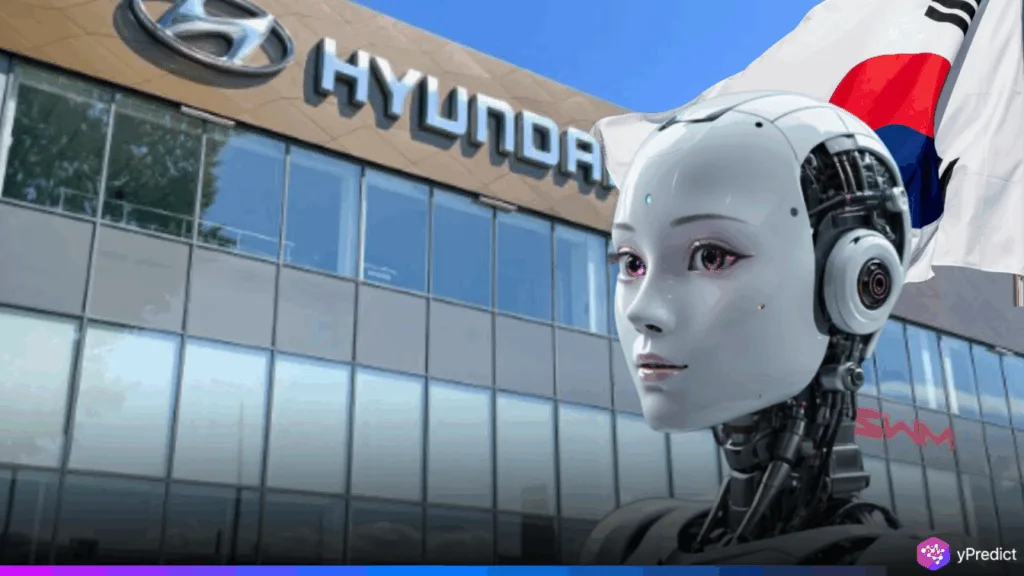
Hyundai Motor Group has set up its initial automated electric vehicle charging robots (ACRs) at South Korea’s Incheon International Airport. This action is made possible by an agreement between Hyundai and the IIAC that represents a key step in building autonomous charging infrastructure. This method uses an AI-enhanced system to locate, line up and fit EV chargers into position without assistance at any temperature level controlled by a robotic arm. This demonstration is part of Hyundai’s broader strategy to scale smart mobility tech and support Korea’s transition to cleaner, more efficient transportation across public EV charging infrastructure.
Transforming Airports into AI Charging Hubs
The new AI-based ACRs are more than just a tech showcase. They’re part of a larger plan to turn Incheon into a futuristic digital airport. These robots, certified for safety both in Korea (KC) and the EU (CE), will serve as a proof-of-concept for automated charging at major transport hubs. Hyundai’s ACR uses 3D cameras and an AI algorithm to plug into a vehicle’s charging port with less than 10mm of error.
Hyundai’s Robotics Lab has been developing these systems since 2023. At Incheon, the robots will support fast charging, gather real-world usage data, and enhance EV services. Smart parking integration, remote vehicle positioning, and automated DC fast charging combine to create a seamless experience. Hyundai and IIAC are focused on safety, reliability, and user feedback during the demonstration phase.
The installation supports the upcoming “Incheon Airport 4.0 Era,” where tech plays a central role in managing rising passenger volumes. Hyundai plans to expand the ACR service to other infrastructures such as seaports and train stations, building toward a larger Robotics Total Solution (RTS). It’s a move that positions Hyundai as a leader in integrating AI into the global EV charging ecosystem.
Hyundai’s Strategic Edge in Charging Automation
A decade after Tesla showcased its snake-arm charger prototype, Hyundai is the first to bring a commercial-grade version to life. While Tesla dropped its project, Hyundai built on the concept using its advanced robotics and AI R&D. The Incheon installation proves the company can deliver real-world EV automation at scale, critical as EV adoption grows and charging infrastructure becomes strained. Hyundai’s ACRs are tailored for tight, high-traffic areas like underground parking lots. Combined with Hyundai and Kia EVs that support autonomous parking, the system eliminates the need for driver presence. It’s not just about luxury; it’s about practicality and scalability in dense urban settings.
The ACRs run efficiently between -15°C and 60°C, making them viable across multiple geographies. Hyundai’s long-term goal is to reduce manual dependency, optimize space, and drive widespread adoption of EVs by solving one of their key friction points: charging access. Feedback from Incheon’s operations will guide future versions. With this tech, Hyundai is building more than just convenience; it’s building infrastructure. It shows how AI charging and robotics can upgrade public transport facilities into automated, intelligent systems, ready for a future of zero-emission travel and hands-free driving experiences.
Hyundai’s EV Charging Robots Signal a Smarter Mobility Future
By deploying AI-powered ACRs at Incheon Airport, Hyundai Motor Group has moved autonomous EV charging from concept to reality. This innovation blends robotics, AI, and infrastructure planning to offer a smarter, more seamless travel experience. It also sets a global precedent, especially as airports and cities look to digitize and decarbonize. Hyundai’s vision of the “Robotics Total Solution” is no longer theoretical; it’s operational and scaling. With expansion plans beyond Korea, Hyundai is laying the foundation for a global network of intelligent EV charging systems that reduce friction, enhance sustainability, and redefine what future mobility infrastructure looks like.






